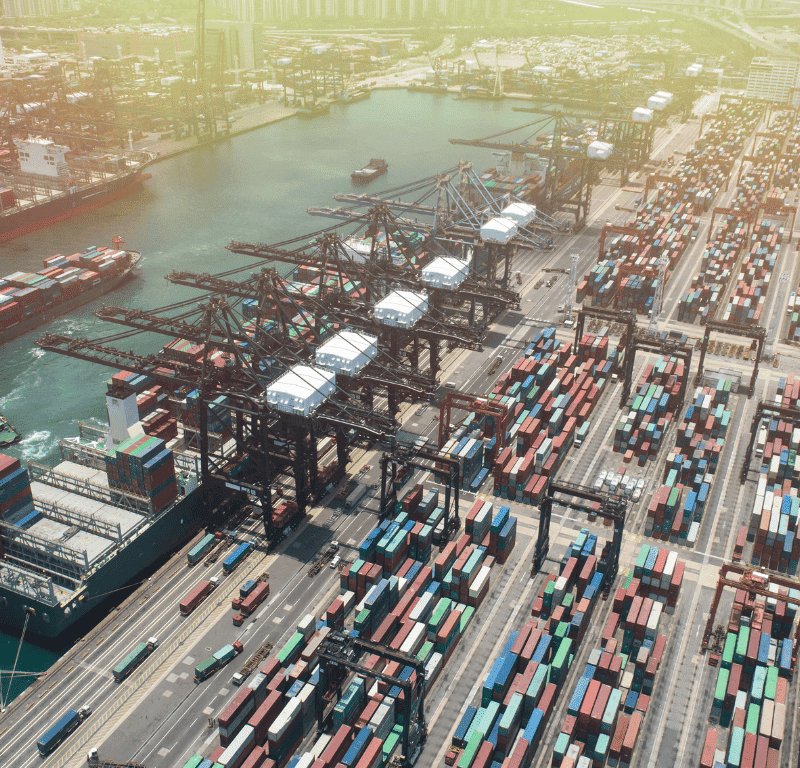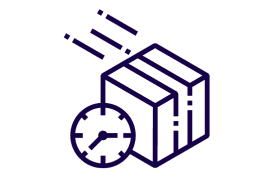Streamline Supply Chain Management with Construction ERP Software
Introduction
Supply chain management is an important key to ensuring you can manage your construction costs. Successful construction projects depend on an adaptable, efficent supply chain.
Construction ERP software can help easily manage your supply chain. Software delivers detailed information to your team on demand. This makes it easy to track materials, equipment, plant, and labour more efficiently and plan better.
Our blog post will cover the key steps you can take to improve your supply chain management processes. We will also provide you with an explanation of how Construction ERP software can make it easier to manage your supply chain and keep costs low.
What is Construction Supply Chain Management?
Construction supply chain management is all the processes, systems, and practices you use to manage and track supplies for your projects. These supplies include information, labour, materials, and equipment.
Better construction supply chain management means improving the processes for gathering project resources, as well as managing relationships in the supply chain, including with manufacturers, suppliers, contractors, owners, and more.
Construction Supply Chains are Complex
Supply chains are made up of many components and third parties. Over the course of any construction project your supply chain will change and evolve. There’s your initial supply chain plan, followed by the work to seek out materials, equipment, and services, delivery logistics for these supplies at the correct time to support construction of the project, as well as reverse logistics for items that are defective or unsuitable.
Managing your supply chain can be more difficult if you don’t have easy to understand data. Communication hold ups can also impact your supply chain. Because managing your supply chain involves manufacturers and suppliers, transportation and logistics, there is potential for delays at every stage. One delay can lead to more scheduling problems. If you aren’t able to manage the issues, your budget can balloon.

Understand ERP Supply Chains
Managing the complexities of supply chain management requires a solution that can handle a large flow of data. Integrated construction ERP software acts like a central hub for various supply chain activities. Without it, you can be stuck managing multiple systems. ERP software allows data to flow freely across departments, eliminating confusion and data silos.
Using construction ERP software to manage your supply chain means data can be accessed by multiple departments. For example, you can use ERP software like Nimbus and convert your project quotes into a materials list. With the materials list, you can approach suppliers for a price quote, and then create a Purchase Order for the materials. The materials are already logged into the system, so it’s easy to track and manage your project supplies.

Streamline Procurement Processes
Handling your project procurement needs manually means you risk unnecessary delays or bottlenecks when multiple people on your team need to review documents. Look for an ERP system that allows you to automate parts of the procurement process so you can act fast when there’s new information regarding your supply chain.
Using ERP software that’s made for construction can allow you to generate purchase orders based on predefined criteria, and automatically send RFQs to your suppliers. With software communication between your procurement teams and vendors is smoother.
In addition, using software to manage your construction data makes the process more transparent. It’s easier to spot issues and make decisions that will allow you to avoid bottlenecks.

Manage Your Inventory Efficiently
Every construction project faces uncertainties like changing materials costs, labour shortages, and emergencies. Well managed inventory helps you avoid extra costs for overstocking or running low on your regular stock.
For example, you can track inventory levels by reviewing your data on materials usage, reorder points, and supplier lead times. With this kind of inventory intelligence, you’ll be able to act to prevent shortages and reduce your overall carrying costs.
Enhance Vendor Collaboration
Successful construction projects rely on effective communication and collaboration to handle all of the details. Similarly, effective construction supply chains require regular communication among your project managers, subcontractors, suppliers, product vendors, and transportation companies.
Working with the most recent information so you can spot potential delays or identify higher costs before they impact your project leads to better planning and improved outcomes overall.
Track Materials
Manual tracking of materials is time consuming. The risk is that you may not have materials in time to meet demands of your project schedule.
Modern construction companies can use multiple digital tracking methods to ensure that supplies are available when they are needed. For example, RFID tags, QR codes, and GPS tracking can all help you monitor materials shipments. They also provide project managers instant visibility into the status of your shipments, estimated arrival times, and potential delays.
Integrate with Financial Management
Construction is an industry with complex finances. The ability to manage and track your supply chain supports and streamlines information about your project finances. Direct integration of supply chain information with your project finances gives you information that saves you time and money. You can use business analytics to identify areas where you have high logistics costs and use the information to change your processes where possible.
Integrating your supply chain data with financial data allows your project managers to closely track costs associated with procurement, inventory, and material movement, and ensure accurate financial reporting.
Conclusion
Using ERP software addresses many of the biggest challenges in construction supply chain management. You can improve your procurement, inventory, communications, and material tracking processes, leading to increased project efficiency and reduced risks.
Moving to more automated processes helps you reduce waste, so you no longer have bottlenecks or repeated work.
With everyone on your team accessing centralised data everyone involved in the project has access to the most up to date information about project progress. It provides the basis for analytics that can alert you to inefficiencies or issues that may impact your construction operations.
Improving your supply chain processes and systems can seem like a lot of work, but the investment is worthwhile because using tools like ERP software make your processes more transparent, improve your ability to control costs, and enable you to complete projects on budget and on schedule. Ultimately, working with an efficient supply chain means you’ll be able to complete more project successfully and win more jobs overall.
Interested in using construction ERP software to help you to manage all the variables in your supply chain? Get in touch to learn more about Nimbus.